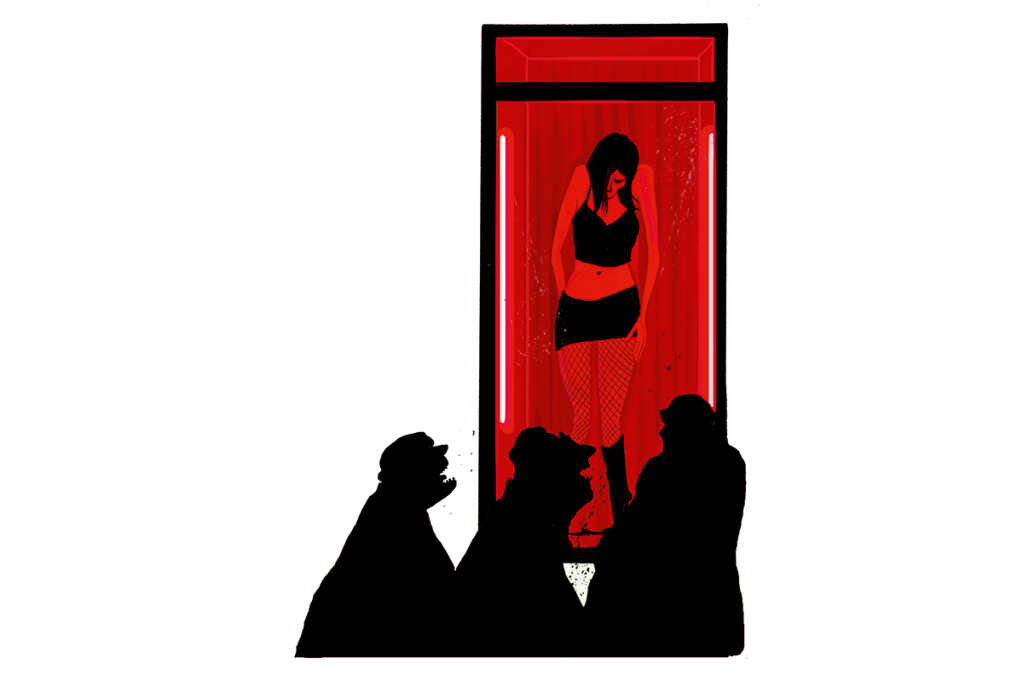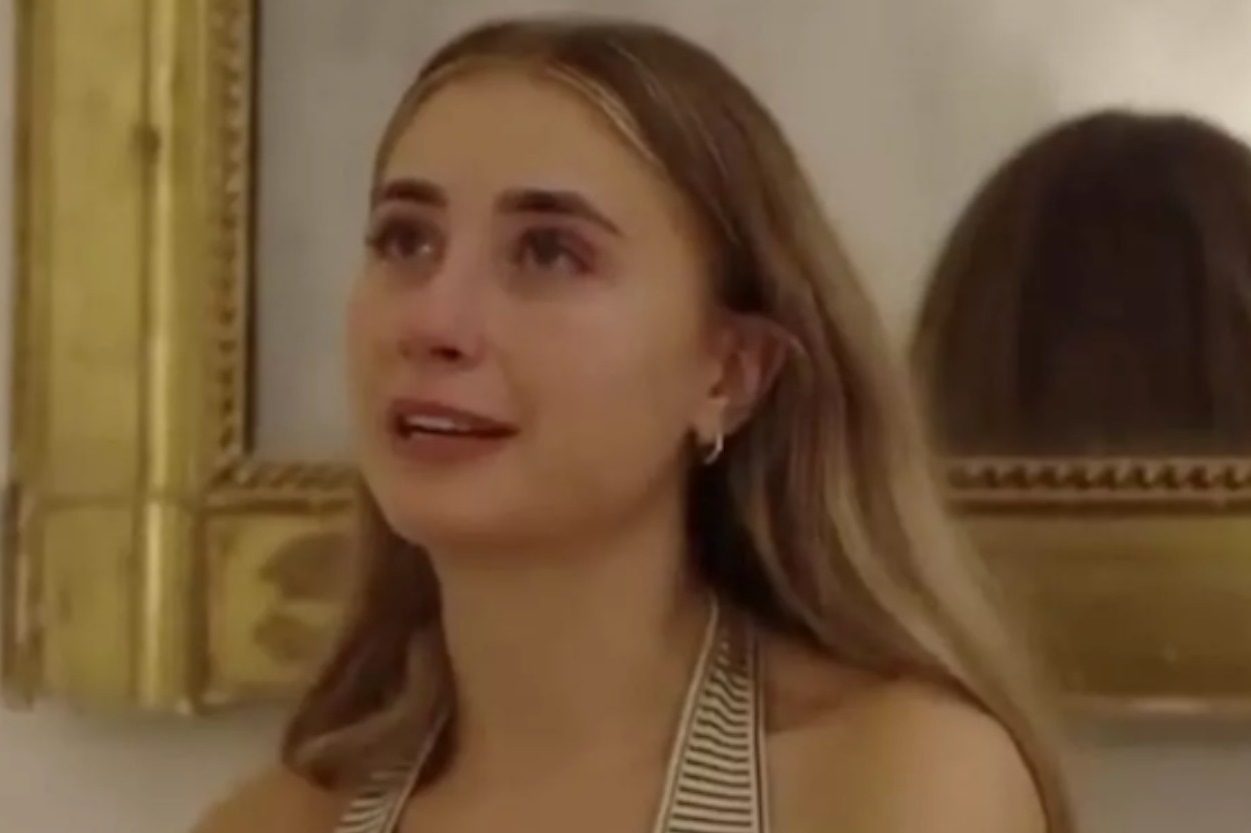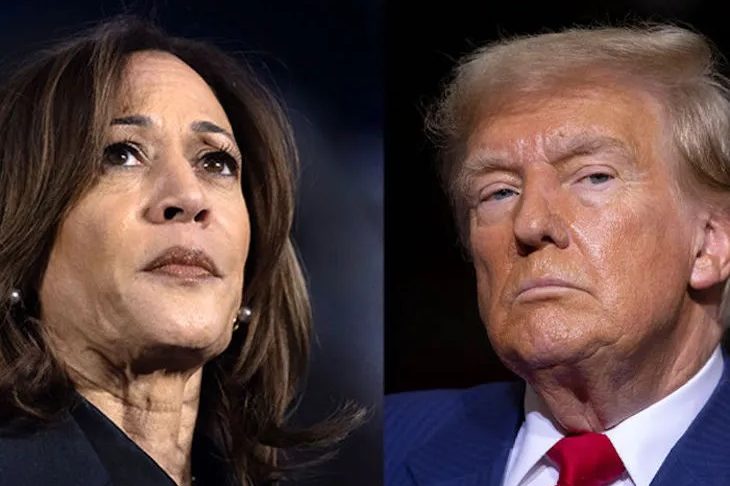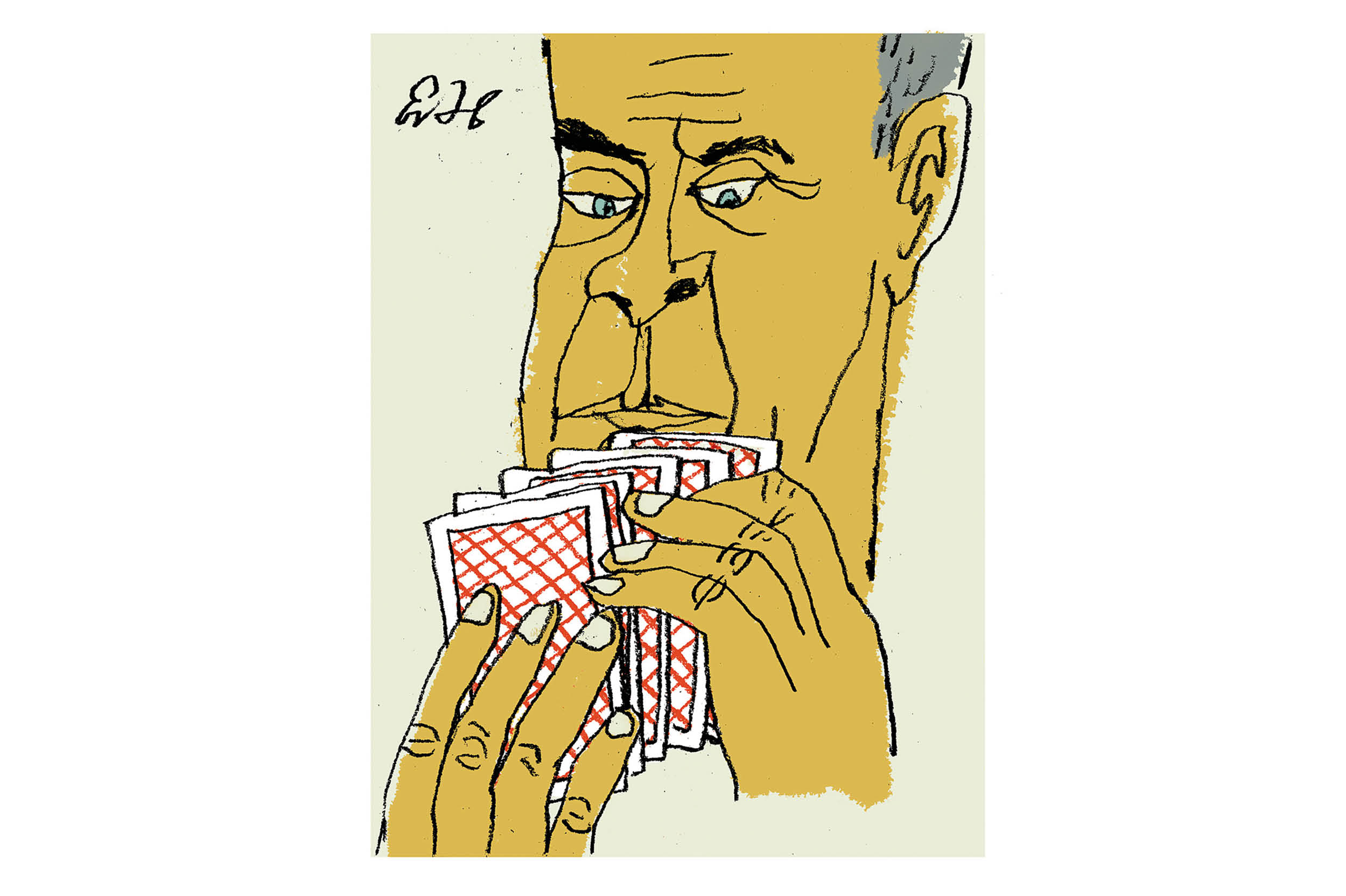‘What happens in Vegas, stays in Vegas’ is the popular saying. The phrase is thought to have originated in part from the legal brothels of Nevada, where men are assured of anonymity. These brothels have been considered a necessary service industry in the area since the 19th century, when Nevada was populated almost entirely by male gold prospectors. There are currently 21 legal brothels in operation across seven of Nevada’s counties, and I’ve visited seven — as a journalist, not as a sex buyer. What I saw and learned was horrible.
Described by one former Nevada prostitute as ‘pussy penitentiaries’, Nevada brothels are only allowed in counties with populations of fewer than 400,000 so as not to offend the residents.
Legal brothels are often portrayed as fun and harmless, as in HBO’s Cathouse, a documentary series about the Moonlite BunnyRanch in Nevada. The reality is quite different. Legal brothels harbor the most viciously abused women, often pimped and controlled and treated as nothing more than a commodity.
Change could be on its way. Lawyers on behalf of sex-trafficking survivor Rebekah Charleston filed a lawsuit last year against Nevada’s permissive laws on prostitution. The case was dismissed, but, following an appeal submitted by the legal team, the Ninth Circuit requested an oral argument on the case, which is expected to be heard in November.
According to Charleston, Nevada’s legal brothels are in violation of and in direct conflict with federal law. The lawsuit seeks an order declaring the licensing of brothels to be unconstitutional, null and void. The crux of the case is that by creating conditions that enable sex trafficking, whether within or across borders, Nevada is in violation of the Thirteenth Amendment, which forbids slavery and involuntary servitude in the US.
In 1910, Congress approved the Mann Act, which criminalized the transport ‘of any woman or girl for prostitution’, with the intention of combating prostitution and human trafficking in the US. In 1986, the clause of ‘criminalized coercion’ and enticement to ‘travel in interstate…to engage in prostitution’ was added, with a maximum jail sentence of 20 years.
Charleston is asking the court to issue a permanent injunction prohibiting the State of Nevada from permitting legal brothels. She is also requesting that the state creates a ‘Sex Trade Exit Fund’, which would provide mental health services, rent assistance, job training, scholarships and funding for medical treatments for sex-trade survivors.
In the 1990s, Charleston was trafficked to Nevada and sent by her pimp to a legal brothel. While there she was not allowed to turn down a john and suffered multiple violent rapes and assaults. After 10 years of hell, Charleston finally escaped in 2009 when federal authorities became involved. She said in her evidence to the court that the practice of legalized prostitution in Nevada is ‘regressive, oppressive and targets the most vulnerable women’.
Charleston is now asking the court to redress the harm inflicted upon her and countless other women and to put an end to the legal loopholes that allow traffickers to profit from the exploitation and industrialization of women’s bodies.
Her route into prostitution is a familiar tale of a dysfunctional family and sexual violence. When she was just five, Charleston’s older brother took his life and the family fell apart. Raped at 15, Charleston got hooked on drugs, which led her parents to send her to a religious residential facility. Aged 17, Charleston escaped and was soon targeted by predators.
She got work at a strip joint and met a man in his forties who offered her what he said was a better life. He gave 18-year-old Charleston a fake birth certificate claiming she was a 21-year-old called ‘Ann Wilson’. Soon, the man became her pimp. Charleston was sent to brothels to earn money and, if she refused her pimp anything, he would torture her. ‘I was completely under his control,’ Charleston told me.
While visiting the Nevada brothels, I saw johns pick women out from a lineup in the lobby by clicking their fingers or pointing. The women were only allowed out of the brothel complex if accompanied by an assistant pimp and were mandated to have regular checks for sexually transmitted diseases. As one john said to me in the Love Ranch in Crystal County: ‘I hate using a rubber but here the girls have to be clean or they are kicked out.’
Legal brothels provide a kind of smoke-screen for illegal prostitution. Escort agencies in Nevada facilitate illegal prostitution to meet the high demand of people traveling to Nevada to purchase sex, many of them incorrectly believing that it is legal everywhere in the state. Legal escort agencies in Las Vegas are often fronts for sex-trafficking rings. Las Vegas is a well known destination for pimps and sex buyers. The advertising and marketing from legal brothels entice sex tourists to travel to Nevada from across the country and all over the world.
Legalized prostitution is proven to increase sex trafficking, as shown by a 2013 London School of Economics study of 150 countries, which found that wherever prostitution was legal, sex trafficking tended to increase.
After Charleston’s trafficker was sent to jail for tax fraud in 2009, she escaped from his house. By January 2012, she had detoxed from drugs and moved back to Texas. ‘I didn’t even know who I was,’ she says. ‘I had been told by men who I was my entire life.’ In 2013, she began to speak out and share her story, including to law enforcers.
‘America can no longer look the other way on legal systems of prostitution that still exist,’ she says. ‘On one hand, we are fighting injustices like sexual assault, human trafficking and sexual harassment, but we are still allowing those crimes to take place legally inside of Nevada’s brothel system. It has to end.’
Melissa Holland runs the Awaken project, a faith-based NGO that supports women leaving the legal brothels. Over the past nine years, Awaken has worked with
almost 600 victims of sex trafficking. ‘Nevada has had a legalized sex trade for 48 years, and the unintended consequence is the way that prostitution is normalized and treated like a job like any other,’ says Holland. ‘It has created a breeding ground for sex tourism and sexual exploitation to thrive.’
A study by Creighton University reveals that Nevada’s sex trade is by far the largest of any state in the nation. Nevada’s number of prostituted people per capita is 63 percent larger than New York’s and more than twice as many as California’s.
When pimps become elected officials, as did brothel owner Lance Gilman, who was elected as a Storey County commissioner in 2012, pressure is applied to protect the legal brothel trade. Gilman has been trying to increase the number of brothels permitted in his county. I visited his Mustang Ranch and he bragged that he had ‘a stable of a thousand’ women.
The Mustang Ranch was handed to the federal government in 1999 following previous owner Joe Conforte’s convictions for tax fraud, racketeering and other crimes. The brothel was auctioned off by the US Bureau of Land Management and bought by Gilman in 2003. He moved the buildings and reopened it in 2005-06.
Gilman has designed a game called ‘Hunt a Ho’, in which johns visiting Mustang pay to ‘hunt’ women in the desert with paintball rifles. When a woman is ‘caught’, the john is rewarded with sex. ‘We get the girls, they are the prey, hunters come find ’em,’ said Gilman in a promo video.
A number of countries that have legalized brothels are beginning to admit defeat and look for new ways to approach the problems inherent to prostitution. The Netherlands is as famous for its window brothels and sex tourism as it is for its tulips, but it has been closing down sex establishments in recent years and is currently considering replacing legalization with laws that deter and criminalize the buyers. It is becoming abundantly clear that legalization has not delivered what was promised: an end to trafficking, violence and exploitation.
The legal sex trade gives permission for men to dehumanize women, while the prostituted women remain raped, kidnapped, beaten and murdered at levels higher than the national average. Nevada consistently ranks number one for domestic violence fatalities and third in the nation for rape and sexual assault.
If Rebekah Charleston is successful and Nevada’s legal brothels are closed down, what will happen to the numerous illegal premises across the state? Prostitution and sex trafficking will not magically end in Nevada overnight. But with the myths of legal brothels debunked, the reality of what this system has spawned, namely the expansion and normalization of the state’s far larger illegal sex trade, will surely be exposed. The story of what happens in Nevada’s brothels cannot stay in Nevada.
This article is in The Spectator’s October 2020 US edition.

























